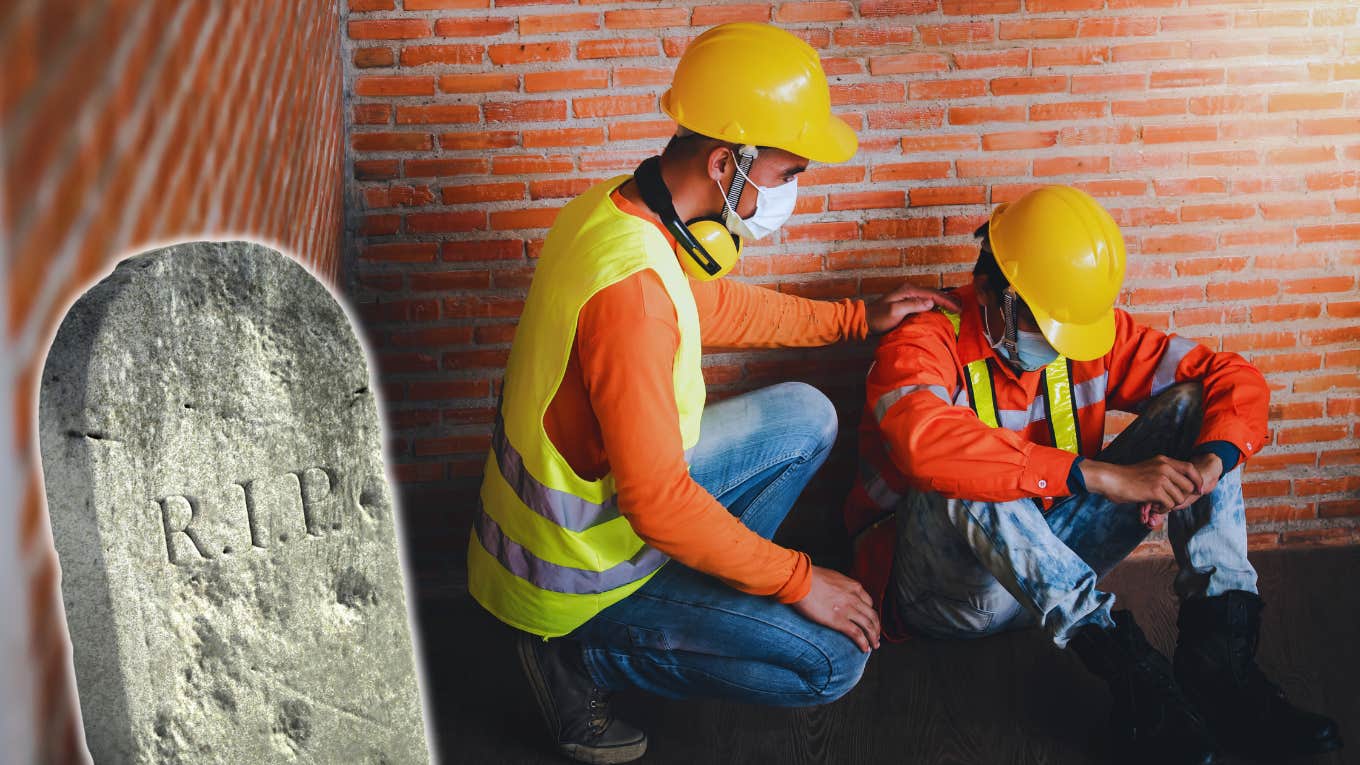Boss Orders Laborers Back To Work An Hour After Co-Worker Dies On The Job
Where is the empathy?
 BELL KA PANG/Koya979 - Shutterstock
BELL KA PANG/Koya979 - Shutterstock Statistically speaking, people will spend a third of their lives or 90,000 hours at work in a lifetime.
Co-workers become family and we start to care about them deeply. So when one of our colleagues dies, it is just as traumatic as losing a relative, or maybe even more painful since we see them so much.
One man called out the callous way his boss dealt with the sudden death of a co-worker at the lumber mill they work at.
In an r/antiwork Reddit post, he explained, "We have a lot of older equipment. These machines we work with are constantly breaking down and causing upset conditions." Apparently, the now deceased employee was operating one of the finicky machines and clearing out 200-pound pieces of wood and stacking them up by hand when he suddenly passed out, falling face-first on the concrete floor.
Unconscious and bloodied, he was on the ground for 15 minutes before anyone noticed his condition. Once found, they performed CPR until the ambulance showed up, then EMS workers took over, doing chest compressions on the way to the hospital. 30 minutes later, the staff was called into a meeting to announce that despite their best efforts, the man had not survived.
According to the poster, his boss made it clear that the laborer's demise was not a result of "unsafe conditions" in the workplace, an assertion that didn't sit well so soon after the incident. He told employees to get back to work as if it were just another day at the office and though "confused and concerned" they returned to their workstations.
Frustrated and likely traumatized from the loss, one man threw up his hands and blurted out, "Well, I see we’re never going to fix this and this is what we’re worth to the company," referencing the outdated machines that required them to put in extensive manual labor.
The annoyed boss urged upset employees who felt unsupported to go home.
He allegedly said, "If you guys don’t feel we support you, you can shut the line down and go home," likely not expecting the fallout that was to come. The workers all looked at one another, silently agreeing to unify against the powers that be. They removed their hard hats and walked off the job in unison, effectively stopping the work in its tracks.
Now, they are in limbo, uncertain about what their future at the company is or if they are even still employed. But one thing they are sure of is that they are not going to take the treatment that their boss has been giving them.
They believe he acted like they were expendable. While confident walking out was the right thing to do, he shared his story in the hopes others could weigh in.
In the end, he sent his condolences to Robert, his co-worker, who had lost his life while simply trying to make a living.
Commenters suggested he contact OSHA to report the incident.
In an edit, the man advised that he had contacted the Occupational Safety and Health Administration, but wasn't sure what the outcome would be. He thanked readers for their kind words and promised to give an update when he had one.
Their advice was on point because any time a worker dies on the job or is severely injured it should be reported to the Occupational Safety & Health Administration (OSHA) within eight hours. They will make the determination as to whether or not the death was work-related.
As for the manager, the way he chose to handle such a tragic incident speaks to his level of emotional intelligence.
Here are seven steps to take when an employee passes away in the workplace.
According to JustWorks.com, the following steps should be taken to ensure other employees have what they need to process the death in a healthy manner:
1. Inform people tactfully.
2. Put plans in place.
3. Allow time and space to process.
4. Offer grief counseling.
5. Send condolences to the family.
6. Find ways to remember the employee.
7. Sort out workplace logistics.
By setting a cultural standard of empathy and support at a company, an employer can reap rewards like less attrition and more loyalty, a positive brand name, the ability to attract new workers, and most importantly, a healthy, happy workforce. Managing your team with an iron hand will only serve to build resentment, create a negative workplace, and over time, contribute to attrition and leave you scrambling to find anyone who is willing to work for you.
NyRee Ausler, SHRM-SCP, SPHR is a writer and author from Seattle, Washington. She covers workplace issues using the experience garnered over two decades of working in Human Resources and Diversity, Equity, and Inclusion.
